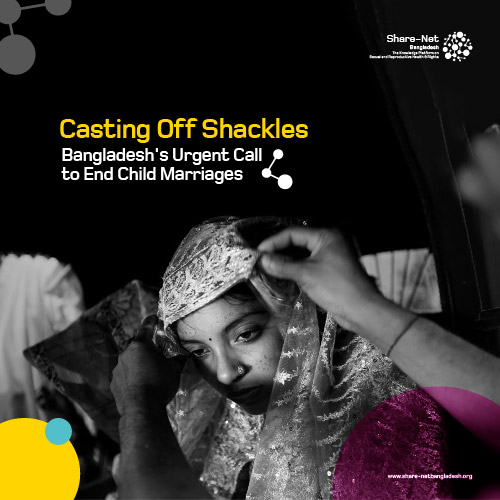Casting Off Shackles: Bangladesh’s Urgent Call to End Child Marriages
Child marriage in Bangladesh remains a formidable challenge, affecting a staggering number of young lives. The recent statistics from UNICEF Bangladesh reveal a distressing scenario, with approximately 56.9 million children among the total population of 169.8 million. Among them, 38 million women and girls have been married before the age of 18, earning Bangladesh the 8th position globally for the prevalence of child marriage.
This alarming trend is deeply rooted in multifaceted issues, with poverty standing out as a key factor. Rural dwellers, grappling with extreme poverty, find themselves compelled to marry off their daughters at an early age. The perception of girl children as burdens exacerbates the problem, often depriving them of primary education and the knowledge to reject this social stigma.
Child brides face severe human rights issues, including increased vulnerability to domestic violence and a higher likelihood of dropping out of school, undermining their right to education. To address this pervasive issue, international instruments like the UN Convention on Consent to Marriage and the Convention on the Rights of the Child have been established. Bangladesh, as a signatory state, is committed to safeguarding children’s rights.
Efforts to combat child marriage extend to legislative measures. Countries like the UK, Australia, and India have enacted laws aimed at protecting children from forced marriage. However, Bangladesh faces challenges in implementing and strengthening its legal framework.
While Bangladesh ratified the Convention on the Elimination of All Forms of Discrimination against Women (CEDAW) in 1985, and the Child Marriage Restraint Act (CMRA) was enacted in 2017, there are critical gaps. The CMRA lacks provisions for appointing child marriage prevention officers, and its offenses are bailable, increasing the risk of child marriage.
The controversial Section 19 of the CMRA, allowing marriages between adolescents under special circumstances, raises concerns about the overall effectiveness of the act. Despite these challenges, Bangladesh is making strides in mitigating child marriage, with the adoption of the National Action Plan (NAP) to End Child Marriage (2018-2030). This comprehensive plan aims to coordinate efforts among policymakers, NGOs, and citizens.
In the words of a UNICEF spokesperson, “Child marriage is a violation of human rights, and addressing this issue requires a comprehensive approach. Bangladesh’s commitment to the NAP and the ongoing efforts to amend and update the CMRA reflects a positive step towards achieving Sustainable Development Goals and ensuring the Sexual and Reproductive Health and Rights (SRHR) of its young population.”
As Bangladesh navigates the legal complexities surrounding child marriage, it is crucial to continue advocating for stronger legal frameworks, widespread awareness, and community-focused initiatives. Only through collective efforts can Bangladesh hope to break free from the vicious cycle of child marriage and fulfill its commitment to a safer and healthier future for its children.
Source: The Dhaka Tribune
Source Contributor: Samiur Rahman, Lecturer, Department of Law, Bangladesh University


